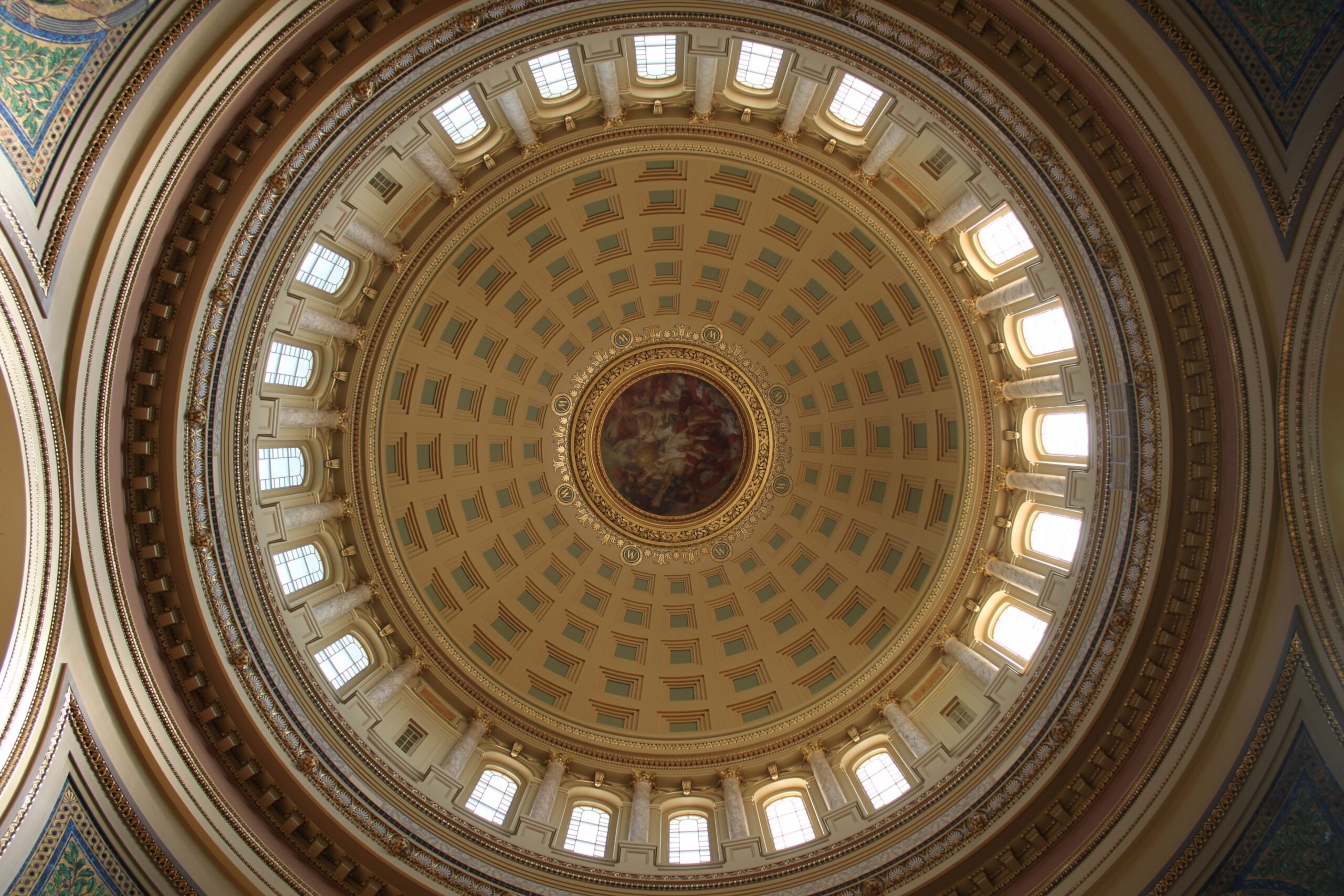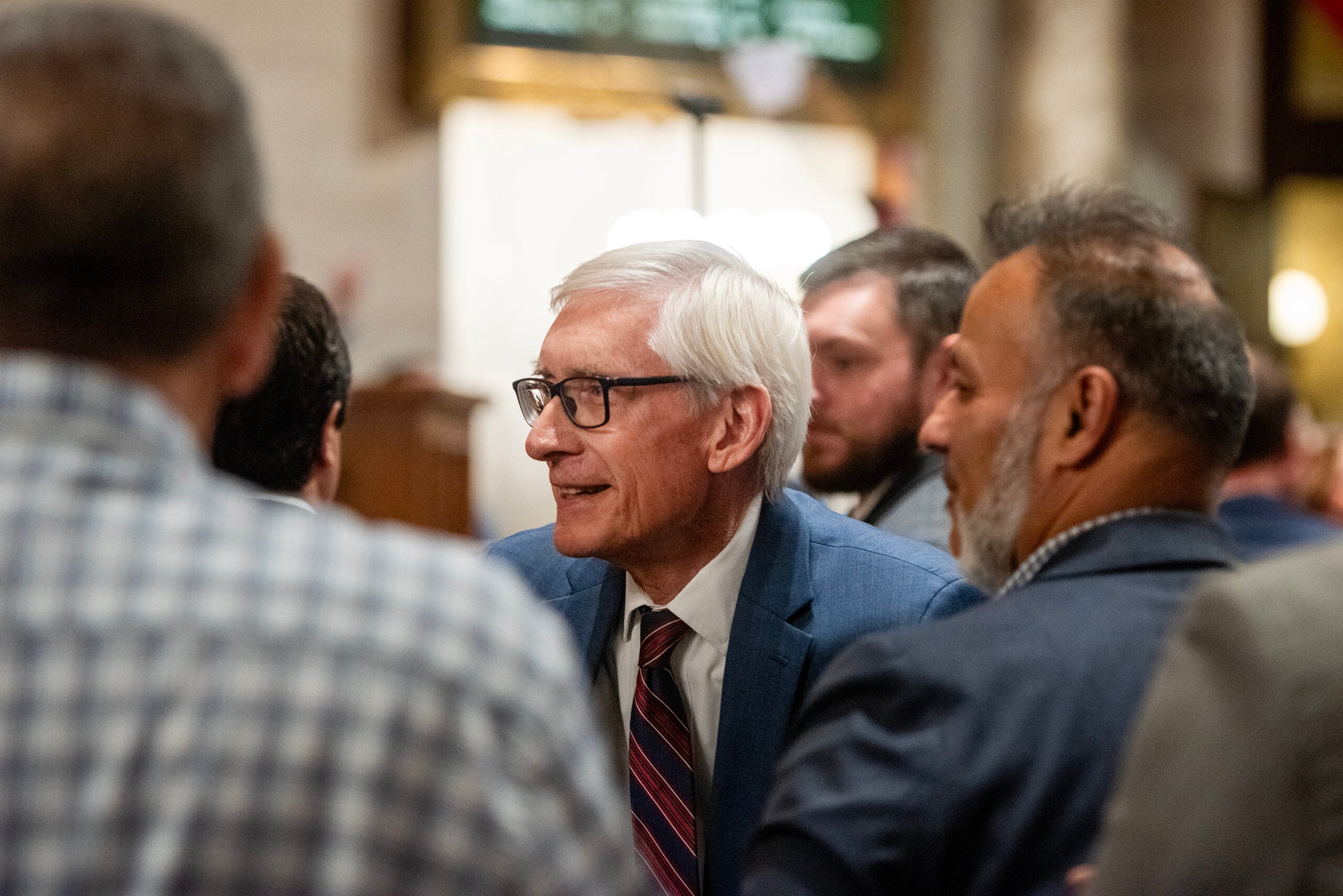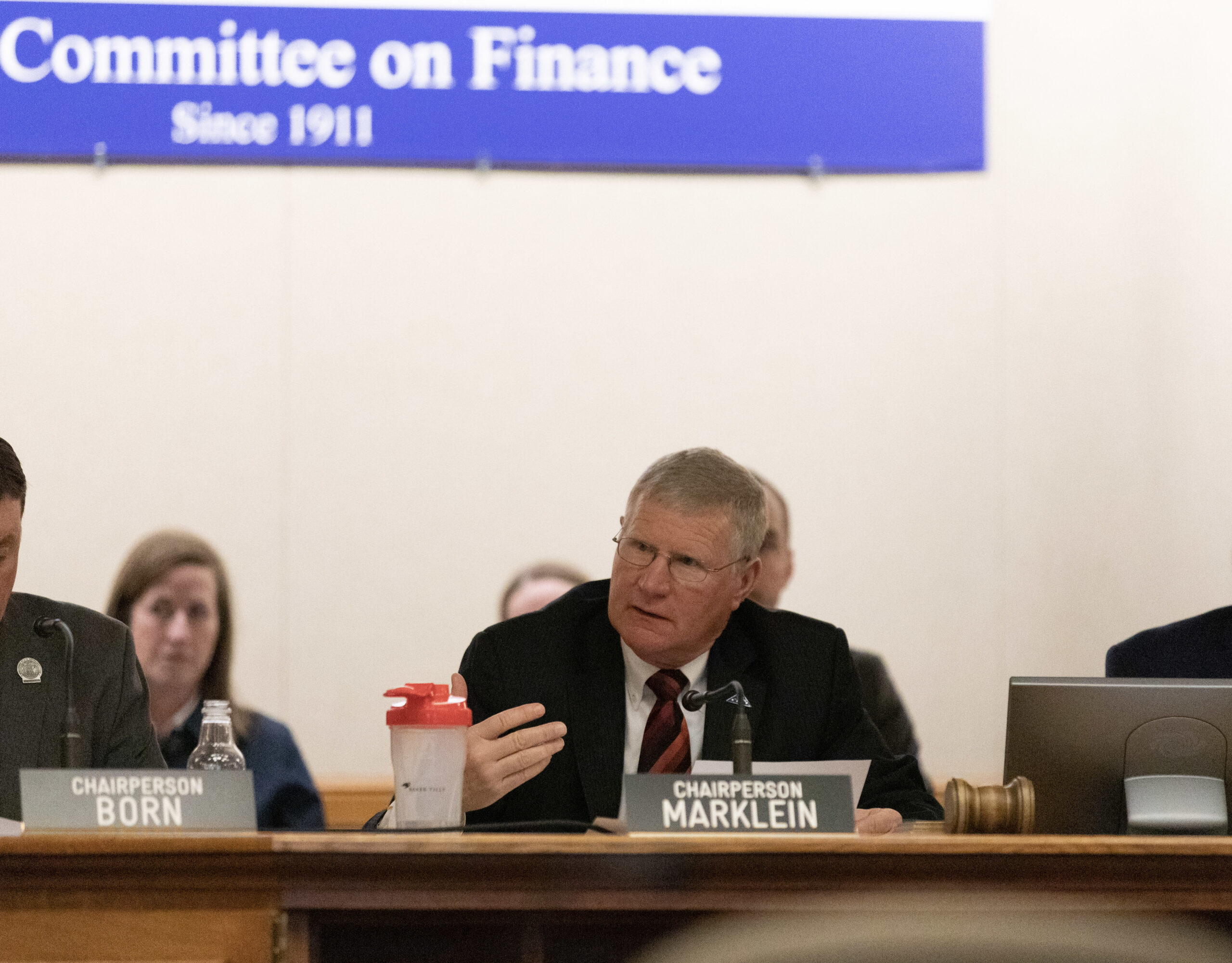The Republican co-chairs of the Legislature’s finance committee cast doubt on major planks of Gov. Tony Evers’ latest state budget Thursday, from Evers’ proposals to increase school aid to his plans to legalize marijuana and increase the minimum wage.
While the comments from Sen. Howard Marklein, R-Spring Green, and Rep. Mark Born, R-Beaver Dam, were hardly surprising given recent history at the state Capitol, they underscored the difficulty Evers faces in getting his budget, and his agenda, through a Legislature dominated by Republicans.
Answering questions at a virtual Wispolitics forum, Marklein hinted that Republicans could set the governor’s budget aside and build their own.
News with a little more humanity
WPR’s “Wisconsin Today” newsletter keeps you connected to the state you love without feeling overwhelmed. No paywall. No agenda. No corporate filter.
“I guess I would characterize his budget as a liberal’s dream,” Marklein said. “It’s going to be difficult to start with the governor’s budget.”
Here are some of the issues Marklein and Born addressed.
Education Funding
Evers’ budget would increase K-12 school funding by $1.6 billion, coupled with an increase in what schools can generate from property taxes at the local level. Taken as a whole, the governor’s proposal would return the state to the days of paying for two-thirds of the cost of education.
“Are we going to spend at the levels he is? Of course not,” Born said. “We didn’t last time either, but we’ll still make good investments in those areas.”
Evers proposed a $1.4 billion increase in school funding in the last budget, an amount the Legislature trimmed by $900 million. Evers later used his veto pen to restore about $65 million in school funds.
Born and Marklein said they still needed to talk to the rest of their GOP colleagues about increasing local school revenue limits as much as Evers wants. Still, they hardly endorsed the idea.
“At least historically, our caucus has not been supportive of things that will increase property taxes,” Born said.
Evers’ proposal would increase local revenue limits by $200 per pupil in the first year of the budget and $204 per pupil in the second year.
The governor proposed identical increases in the last budget before GOP lawmakers trimmed them to $175 and $179 per pupil.
Also on Thursday, Marklein suggested Republicans could use new education funding to reward schools that provide in-person instruction.
“I believe strongly that we need to get our kids back in school,” Marklein said. “The idea of providing incentives for our kids to get back to school is something we’re going to be considering.”
Local Sales Tax Authority
Under the governor’s budget, counties could impose an additional half-percent sales tax if they get it approved by a local referendum. Municipalities with more than 30,000 people could do the same thing if they pass referendums.
It’s an idea that some local governments — and some in the business community — have been pushing for years, but Marklein sounded skeptical.
He said the plan would benefit larger counties and cities, but suggested many of the rural counties in his district would not benefit.
“I’m very concerned that that policy decision would make the rich richer and the poor poorer and increase the disparity between our wealthier counties in the state and our poorer counties.”
Marijuana Legalization
Neither Marklein nor Born gave any indication that Republicans will consider Evers’ plan to legalize recreational marijuana as part of the budget.
“It’s a big policy shift, and I just believe it’s too big to be inserted in the state budget,” Marklein said.
“These are big broad discussions,” Born said. “This is just one example of many of them that the governor put into this budget where it doesn’t belong.”
In the last budget, Evers proposed legalizing medical marijuana and decriminalizing up to 25 grams of marijuana. GOP lawmakers removed those plans from the last budget.
Republicans have also been unwilling to pass legislation outside of the budget to legalize marijuana, either for medical or recreational use. Democrats have introduced bills to fully legalize marijuana dating back to 2014 in Wisconsin.
A Marquette University Law School survey from April 2019 found 59 percent of Wisconsin voters believed marijuana should be legalized while 83 percent favored medical marijuana.
Minimum Wage
Evers’ proposal to increase the minimum wage as part of the budget also appeared doomed based on remarks from Born and Marklein.
The governor called for raising Wisconsin’s minimum wage from the current $7.25 per hour to $8.60 immediately. Evers’s plan would increase the wage again to $9.40 on Jan. 1, 2023 and to $10.15 on Jan. 1, 2024. The minimum wage would then increase automatically to keep up with inflation.
Marklein said the proposal concerned him.
“When wages at the low end get too high, companies automate,” Marklein said. “I’m just very, very cautious always about what the impact is going to be to people on the lowest end of the economic spectrum.”
Evers proposed a similar wage increase in his last budget only to have it removed by GOP lawmakers.
Wisconsin’s minimum wage has not increased since 2009.
Budget Timeline
Even though they don’t agree with Evers on much, Born and Marklein said they expected the budget could get done on time.
The next budget is scheduled to take effect on July 1, although if it’s not yet signed into law, state spending will continue at the rates established in the current budget.
Former Gov. Scott Walker’s last budget took effect three months late as he haggled with GOP lawmakers over issues like transportation funding. But two years ago, Republicans in the Legislature passed their version of the budget on June 27, and Evers signed it on July 3.
“I think we’ll look at a similar timeline,” Born said. “We’re on schedule at this point.”
Wisconsin Public Radio, © Copyright 2025, Board of Regents of the University of Wisconsin System and Wisconsin Educational Communications Board.







